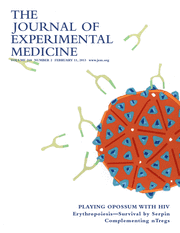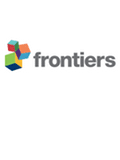
Journal of Innate Immunity
Scope & Guideline
Exploring the Dynamics of Immune Response
Introduction
Aims and Scopes
- Innate Immune Mechanisms:
Research exploring the cellular and molecular mechanisms of innate immunity, including the roles of macrophages, neutrophils, and other innate immune cells in response to infections and inflammation. - Host-Pathogen Interactions:
Studies that investigate how pathogens evade or interact with the host's innate immune system, including the characterization of specific immune responses to bacterial, viral, and fungal infections. - Immunometabolism:
Research focusing on the intersection of metabolism and immune function, examining how metabolic pathways influence the activation and polarization of innate immune cells. - Inflammatory Diseases:
Investigations into the role of innate immunity in the pathogenesis of various inflammatory diseases, including autoimmune disorders and chronic infections. - Therapeutic Strategies:
Studies aimed at developing novel therapeutic approaches that target innate immune pathways for the treatment of infectious diseases and immune-mediated disorders.
Trending and Emerging
- Role of the Microbiome in Innate Immunity:
An increasing number of studies are exploring how the gut microbiome influences innate immune responses, emphasizing the microbiome's role in shaping immune function and disease susceptibility. - COVID-19 and Innate Immune Responses:
Research related to the innate immune response to SARS-CoV-2 has surged, focusing on understanding the mechanisms of COVID-19 pathogenesis and the role of innate immunity in disease severity. - Neutrophil Extracellular Traps (NETs):
There is growing interest in the role of NETs in various diseases, including infections and autoimmune disorders, highlighting their function beyond traditional antimicrobial responses. - Immunotherapy and Innate Immune Modulation:
Emerging studies are investigating the modulation of innate immune pathways as a therapeutic strategy for various diseases, indicating a trend towards harnessing innate immunity for clinical applications. - Inflammation and Metabolism Interplay:
Research at the intersection of inflammation and metabolism is gaining traction, focusing on how metabolic changes in innate immune cells affect their function and contribute to disease.
Declining or Waning
- Vaccine Development Research:
Research related to vaccine development targeting innate immune responses has decreased, possibly due to advancements in established vaccines and a shift towards studying broader immune responses beyond innate mechanisms. - Basic Mechanisms of Immune Memory:
While still relevant, studies focusing solely on innate immune memory mechanisms appear to be less frequent, as researchers increasingly explore the integration of innate and adaptive immunity. - Innate Immune Responses in Non-Infectious Conditions:
Papers investigating innate immune responses in non-infectious contexts, such as metabolic syndrome or cancer, are less prominent, suggesting a potential shift towards more infection-centric research.
Similar Journals

Immunity Inflammation and Disease
Exploring innovative insights in immunology and allergy.Immunity, Inflammation and Disease is a premier open-access journal published by WILEY, dedicated to advancing the field of immunology and allergy. Launched in 2013, this journal has established itself as a significant platform for researchers and professionals to disseminate high-quality research findings and innovative insights that address critical issues in immune responses and inflammatory diseases. With an impact factor that reflects its growing influence and a current ranking in Q3 for Immunology and Q2 for Immunology and Allergy, this journal serves a diverse audience keen on exploring cutting-edge developments. Researchers are encouraged to submit their work to share their findings with a global reach, foster collaboration, and enhance the understanding of immune mechanisms and therapeutic strategies. Accessible since its inception, Immunity, Inflammation and Disease is committed to open science, ensuring that vital research is freely available for the advancement of knowledge within the academic community and beyond.

CELLULAR IMMUNOLOGY
Illuminating the Pathways of Immune MechanismsCELLULAR IMMUNOLOGY is a prestigious journal published by Academic Press Inc. Elsevier Science, dedicated to advancing the field of immunology. Established in 1970 and converging ongoing research up to 2024, this journal has carved out a significant niche within the academic community, boasting a notable Q2 ranking in the Immunology category and holding a respectable 67th percentile ranking within Scopus for its contributions to the disciplines of Immunology and Microbiology. The journal serves as a vital platform for disseminating high-quality research, reviews, and methodologies that elucidate the intricacies of cellular immune responses, thereby benefiting researchers, professionals, and students alike. Although it does not offer open access, the journal's impact is evidenced by its comprehensive coverage of pioneering studies and ongoing developments in the immunological sciences, positioning it as an essential resource for those seeking to deepen their understanding and engage with the latest findings in cellular immunology.

JOURNAL OF REPRODUCTIVE IMMUNOLOGY
Connecting the dots between immune responses and reproductive success.The JOURNAL OF REPRODUCTIVE IMMUNOLOGY, published by Elsevier Ireland Ltd, stands as a pivotal platform for exploring the intricate interactions between reproductive health and the immune system. With an ISSN of 0165-0378 and an E-ISSN of 1872-7603, this esteemed journal spans over four decades, from 1979 to 2024, contributing significantly to the fields of Immunology, Reproductive Medicine, and Obstetrics and Gynecology. Currently ranked in Q2 for Immunology and Allergy and Q1 for both Obstetrics and Gynecology and Reproductive Medicine, it serves as an invaluable resource for researchers, professionals, and students dedicated to advancing knowledge in reproductive health. The journal’s notable impact factor and rigorous peer-review process underscore its commitment to high-quality research, making it an essential reference point for ongoing studies in this ever-evolving discipline. By promoting interdisciplinary discussions and pioneering research findings, the JOURNAL OF REPRODUCTIVE IMMUNOLOGY fosters a deeper understanding of the immune mechanisms that influence reproductive outcomes.

Innate Immunity
Advancing the Frontiers of Immune ResearchInnate Immunity, published by SAGE Publications Ltd, serves as a vital platform for disseminating cutting-edge research in the fields of immunology, microbiology, cell biology, and infectious diseases. With an ISSN of 1753-4259 and an E-ISSN of 1753-4267, this journal has been a prominent contributor to the academic community since its inception in 1996, focusing on the innate immune response and its implications for health and disease. Holding a respectable impact factor and categorized in the Q2 and Q3 quartiles across various relevant domains, Innate Immunity ranks competitively in major databases, including Scopus, where it appears in the top 75th percentile for Infectious Diseases. Researchers and professionals are encouraged to explore its wealth of articles that are pivotal in bridging fundamental immunology with clinical applications, fostering a deeper understanding of immune mechanisms vital for combating human diseases.

INFLAMMATION
Pioneering Insights into Inflammatory ProcessesINFLAMMATION is a prestigious journal dedicated to advancing our understanding of inflammatory processes in health and disease, published by Springer/Plenum Publishers. Established in 1975, it has transitioned through significant developments in the field, with converged publication years extending from 1975 to 2005 and again from 2007 to 2024. Notably, the journal holds a commendable impact factor within its categories, ranking in Q2 for both Immunology and Immunology and Allergy in 2023, and achieving high Scopus rankings, placing it in the 77th and 75th percentiles respectively. Designed to disseminate cutting-edge research, the journal invites original research articles, reviews, and clinical studies that explore various aspects of inflammation, making it a crucial resource for researchers, healthcare professionals, and students aiming to stay abreast of the latest advancements and insights in the field.

NATURE IMMUNOLOGY
Advancing immunological frontiers with groundbreaking research.NATURE IMMUNOLOGY is a premier academic journal published by NATURE PORTFOLIO, dedicated to advancing the field of immunology. With an impressive impact factor that reflects its esteemed position, this journal ranks in the top quartile (Q1) of renowned categories, including Immunology and Allergy. Serving as a crucial platform for researchers, professionals, and students, NATURE IMMUNOLOGY showcases cutting-edge research, comprehensive reviews, and insightful perspectives that drive innovation in immunological science. Based in the United Kingdom, this journal has been a vital contributor to the global discourse on immune responses and related diseases since its inception in 2000. Researchers can benefit from its rigorous peer-review process, ensuring that only high-quality studies are disseminated, thus enhancing their academic pursuits and practical applications. Explore the latest findings and trends within this flourishing discipline, making NATURE IMMUNOLOGY an essential resource for anyone engaged in the study of the immune system.

INFECTION AND IMMUNITY
Empowering Researchers with Cutting-Edge DiscoveriesINFECTION AND IMMUNITY is a distinguished peer-reviewed journal published by the American Society for Microbiology, focusing on groundbreaking research in the fields of infection, immunology, microbiology, and parasitology. Established in 1971, this journal has built a robust legacy, converging years of scientific discovery with a vision towards 2024 and beyond. With an impressive Impact Factor, the journal holds significant rankings in various categories; its Q1 status in both Infectious Diseases and Parasitology underscores its high relevance and quality within the scientific community. Researchers and professionals alike will benefit from its content, as it promotes the latest advances in understanding immune responses and infectious agents, further legitimizing its place among the top quartiles of its respective fields. Access options are provided through traditional subscription models, ensuring a broad charitable dissemination of knowledge. As a pivotal resource for scholars and practitioners alike, INFECTION AND IMMUNITY stands at the forefront of microbiological and immunological research, fostering essential discourse that is crucial for advancing public health and scientific insight.

JOURNAL OF EXPERIMENTAL MEDICINE
Unraveling Complexities in Immunology and BeyondJOURNAL OF EXPERIMENTAL MEDICINE, published by Rockefeller University Press, is a renowned peer-reviewed journal dedicated to advancing the field of experimental medicine since its inception in 1896. With an impressive impact factor and categorized in the Q1 quartile for Immunology, Immunology and Allergy, and Miscellaneous Medicine, this journal stands at the forefront of medical research and innovation. It provides a prestigious platform for scholars and practitioners to disseminate groundbreaking findings that drive the understanding of disease mechanisms and therapeutic strategies. While the journal is not open access, it maintains high visibility and engagement within the scientific community, fostering collaboration among researchers, professionals, and students alike. The journal's consistent ranking in the top percentiles of Scopus illustrates its significant impact and commitment to excellence in medical research.

SCANDINAVIAN JOURNAL OF IMMUNOLOGY
Pioneering Research at the Intersection of Immunology and MedicineScandinavian Journal of Immunology is a prestigious peer-reviewed journal published by Wiley, focused on the evolving field of immunology and its interdisciplinary ties with medicine. Since its inception in 1972, this journal has cultivated a rich repository of knowledge, showcasing innovative research and reviews that contribute to the understanding of immune system functions, disorders, and therapeutic interventions. With an impressive impact factor reflecting a Q2 ranking in Immunology and a top-tier Q1 status in miscellaneous Medicine categories for 2023, it is recognized for its high-quality scholarly output, positioning it among the leading journals in the field. Additionally, its Scopus ranking of #84 out of 236 in Immunology underscores its significance and relevance to both emerging and established researchers. Although it does not currently offer open access options, the journal’s expansive reach and rigorous publication standards make it an essential platform for disseminating impactful research to the global scientific community. The journal invites submissions that explore the complexities of the immune system, aiming to bridge clinical and basic science for a comprehensive understanding of immunological phenomena.

Frontiers in Immunology
Exploring New Frontiers in Immunological ScienceFrontiers in Immunology is a leading open-access journal published by FRONTIERS MEDIA SA since 2010, dedicated to advancing knowledge in the field of immunology. With an impressive Q1 ranking in both Immunology and Allergy as of 2023, this journal exemplifies excellence in research dissemination, positioning itself among the top 22% of relevant literature in the discipline. The journal, based in Switzerland, emphasizes its commitment to open science by ensuring all published research is freely accessible, fostering collaboration and innovation among researchers, professionals, and students alike. With substantial visibility demonstrated by its ranks within the Scopus database—ranked #52 out of 233 in Immunology and Allergy, and #58 out of 236 in Immunology and Microbiology—Frontiers in Immunology serves as a vital platform for cutting-edge research. Researchers are invited to contribute original investigations and reviews that expand the understanding of immune mechanisms, therapeutic advancements, and clinical applications, making it a cornerstone for those looking to push the boundaries of immunological science.